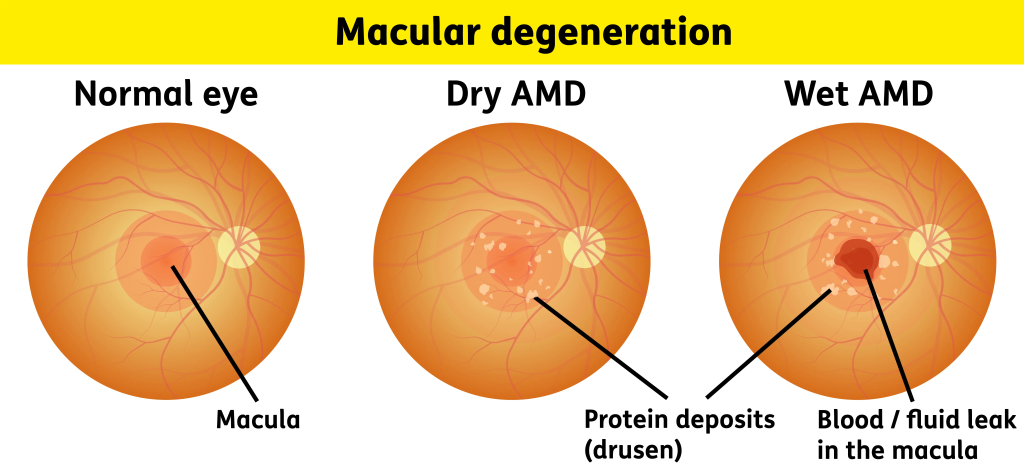Introduction
Macular degeneration is a common eye condition that affects the central part of the retina (macula), leading to vision loss in the center of the visual field. While there is no cure for macular degeneration, certain dietary choices, particularly fruits and vegetables rich in specific nutrients, may help support eye health and potentially slow progression. It’s important to note that dietary changes should complement, not replace, professional medical treatment.

Beneficial Fruits and Vegetables
Leafy green vegetables such as spinach, kale, and collard greens contain lutein and zeaxanthin, two antioxidants that accumulate in the macula and help protect against oxidative damage. These nutrients may help filter harmful blue light and reduce the risk of progression from intermediate to advanced macular degeneration.
Orange-colored fruits and vegetables like carrots, sweet potatoes, and cantaloupe are rich in beta-carotene, which the body converts to vitamin A. This vitamin is essential for good vision and helps maintain a healthy retina.
Colorful berries and citrus fruits provide vitamin C, a powerful antioxidant that supports blood vessels in the eyes and may help reduce the risk of cataract formation alongside macular degeneration.
Tomatoes and watermelon contain lycopene, another antioxidant that may offer protective benefits for eye health. Cooking tomatoes can actually increase the bioavailability of lycopene.
Cruciferous vegetables like broccoli and Brussels sprouts provide a combination of antioxidants and sulforaphane, which may help protect retinal cells from damage.
Important Considerations
While these foods may support eye health, they are not a treatment for macular degeneration. The Age-Related Eye Disease Study (AREDS) and AREDS2 formulations, which include specific high doses of vitamins C and E, zinc, copper, lutein, and zeaxanthin, have shown some effectiveness in reducing progression of intermediate to advanced macular degeneration. However, these are pharmaceutical-grade supplements, not regular food sources.
Professional Guidance
Always consult with an eye care professional before making significant dietary changes or taking supplements. Individual needs vary, and some supplements may interact with medications or have side effects. Regular eye examinations and following your doctor’s recommended treatment plan remain essential for managing macular degeneration.
References:
- National Eye Institute – Age-Related Eye Disease Studies (AREDS/AREDS2)
https://www.nei.nih.gov/research/clinical-trials/age-related-eye-disease-studies-aredsareds2 - American Academy of Ophthalmology – Nutrition and Age-Related Macular Degeneration
https://www.aao.org/eye-health/tips-prevention/nutrition-amd - Journal of the American Medical Association – Dietary Carotenoids and Risk of Age-Related Macular Degeneration
https://jamanetwork.com/journals/jamaophthalmology/fullarticle/2697334 - Nutrients Journal – The Role of Fruits and Vegetables in Age-Related Macular Degeneration
https://www.mdpi.com/2072-6643/12/6/1728
This information is provided for educational purposes only and does not constitute medical advice. Always consult with qualified healthcare professionals for proper diagnosis and treatment recommendations. Dietary changes should be part of a comprehensive approach to eye health under professional guidance.
